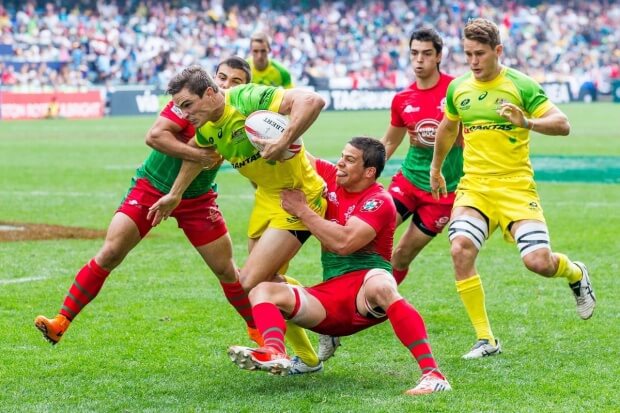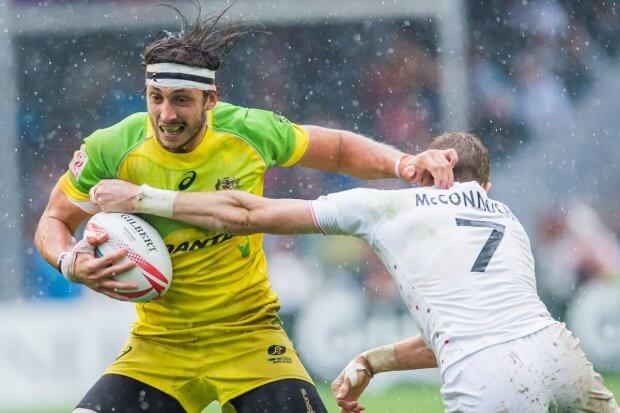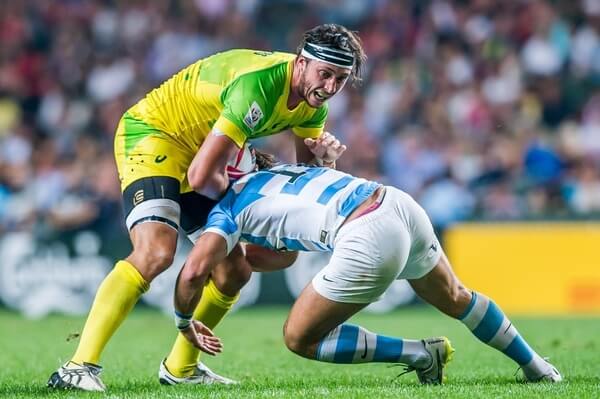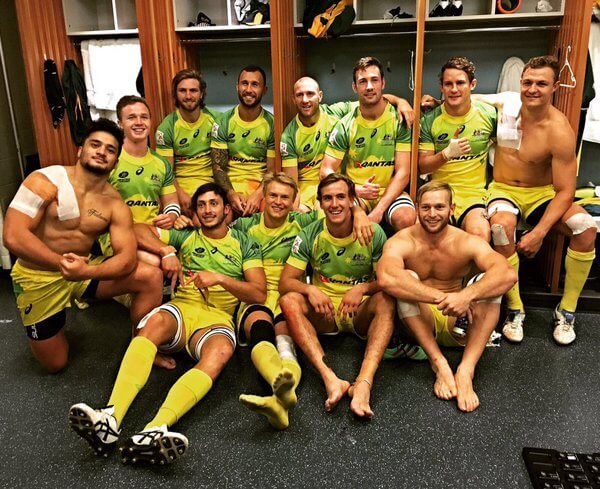With the Olympic Sevens tournaments now over, it’s time to take a step back and look at the direction our teams are heading.
Reg yesterday took on the Women’s side, and today I’m stepping up to have a look at the blokes.
Unfortunately the picture is a little less rosy for our Men’s side, and there aren’t any easy answers.
The Olympic campaign
The demons that haunted us all season were predictably seen again in Rio, and despite doing well to rebound from an early loss to France we succumbed to the Blitzbokke in the Quarters.
While our Rio tilt wasn’t a success, I don’t think it’s fair to say we failed either. We gave it a crack and finished roughly where we deserved to. We needed everything to go our way to be in medal contention, and an early injury to Lewis Holland (arguably our best player) put us right behind the 8-ball – not to mention pre-tournament injuries to Henry Speight, Sam Myers and Pama Fou.
Ultimately we just lack the firepower to consistently compete with the better teams, which makes us more at risk to drop matches against second and third-tier opponents like France.
While Reg focused on the off-field opportunities presented by the Women’s success, for the Men it’s a very different story. Our main failings are occurring on the field, and that’s where this analysis will focus.
With star players Pama Fou and Cameron Clark leaving to join Super Rugby teams, our Men’s Sevens side is at a crossroads. With four years until Tokyo there is a unique opportunity to rebuild our program, and stock it with the necessary firepower to win gold in 2020.

Redefining our identity
For the last five years or so, our Men’s Sevens side has been defined by its tenacity. We’re not the biggest or the fastest, we don’t have all the skills, but we fight like crazy for every scrap of possession. We don’t have big names or big egos and our work ethic is second to none.
This is largely dictated by the players recruited to the program in that time. With a few exceptions (Fou being the most prominent) our players fit a very similar mould – small and tough. Some may be a bit faster than others (Henry Hutchison, Greg Jeloudev) or a bit more skilful (Holland, Clark) but by and large it’s fairly homogenous.
For this reason we are one of the hardest sides to watch. And it was the case again in Rio – in the Quarter Final against South Africa our progress up the field was painfully slow. At one point I thought we might start playing pick-and-drive. We lacked the speed, skill and power to break tackles, and the Bokke dealt with us fairly easily.
This to me is not the identity we want for an Australian rugby team. No matter how many players are on the field, I think all Aussie rugby should be fast, free-flowing and skilful. The rugby of Gregan and Larkham, Horan and Little, Genia and Cooper. At present, our Sevens team is the antithesis of this. They are the Western Force of World Sevens – undersized and underskilled, though you can’t fault their character or effort.
This needs to change. But how do we do it?
The long road ahead
Tokyo is four years away, and that’s a bloody long time. So much can happen between now and then and it would be foolish to start thinking about the 2020 Games too much.
Our biggest area of focus needs to be recruitment. I’m hesitant to be too critical of Andy Friend as I think he did a decent enough job with the talent at his disposal. We need to give ourselves more to work with – better players with more upside for development.
Finding these players will be a difficult task, though. Our Men’s Sevens program do not have many of the situational advantages enjoyed by the women – there is a huge amount of competition from the other codes for talent, and unlike the Women’s game 15s rugby will always be the pinnacle of the game, in terms of prestige as well as economics.
No easy answers
It’s easy to see that we need to expand our Sevens talent base. It’s a lot harder to work out how exactly we do it.
As much as I would like it to be possible, the ARU cannot pour money into 7s to make it a more attractive proposition for potential players. There isn’t an investment on return. There are no major ticket sales to be had (our home tournament does not live and die by our side’s success), no TV rights honey pot and no major financial rewards for success.
That said, I would like to see an increase in the amount we invest, ramping up to the next Olympics. I’d like Lewis Holland, Henry Hutchison, Jesse Parahi and Ed Jenkins be paid very competitively, with a view to building our side around the four of them for the next few years (James Stannard is unfortunately past his best and needs to be moved on).
We will then have to do what we have always done – recruit young up-and-comers, hungry for success and a chance to travel the world in Gold. I can’t really provide names as examples, but I’d widen our focus from rugby teams to all sports. This was attempted a few times last year with players like Marmin Barba and Frankie Winterstein, and I’d like to see this continue.
We’d have to look at second tier and junior Union and League, as well as offering an opportunity for players from other sports to try their hand – Pama Fou was a volleyballer and it’s in those sports that Sevens has a competitive advantage in recruitment.
Coaching, training and tactics
Fixing the recruitment is the first step, and I think changing the way we mould our talent is the second.
Based in Narrabeen, our blokes spend 9-10 months of the year on the training paddock. That’s just the nature of Sevens, but I can’t help thinking the natural playing instincts of our men are being trained out of them.
One of the reasons Quade Cooper didn’t cut it for Australia was that his style was fundamentally different to how our team plays. He is instinctual, unpredictable and skilful, where the players around him were structured and workmanlike. Given time this may have been a beautiful union (after all Quade gelled superbly with Ant Faingaa in the Reds 2011 success) but unfortunately time was the one thing Quade didn’t have.
I’d like to see us take a different approach to our Sevens. Encourage the natural attacking flair that you see in junior rugby and the NRC. We can’t be Fiji, but we are capable of being playing far more attractive rugby than what we do at the moment.
It doesn’t need to be a full rebuild. We have a decent squad, though not brimming with natural talent. With some smarter coaching and an injection of skilled, fearless youngsters we could take our game to the next level.
There is an argument for bringing bigger names into our set-up, and looking at the failings of how that was attempted this year. But that’s a distant issue now.
What we can accomplish is setting the foundations for 2020 success, and it starts with redefining our style of play, and finding players better able to showcase that style to the world.




